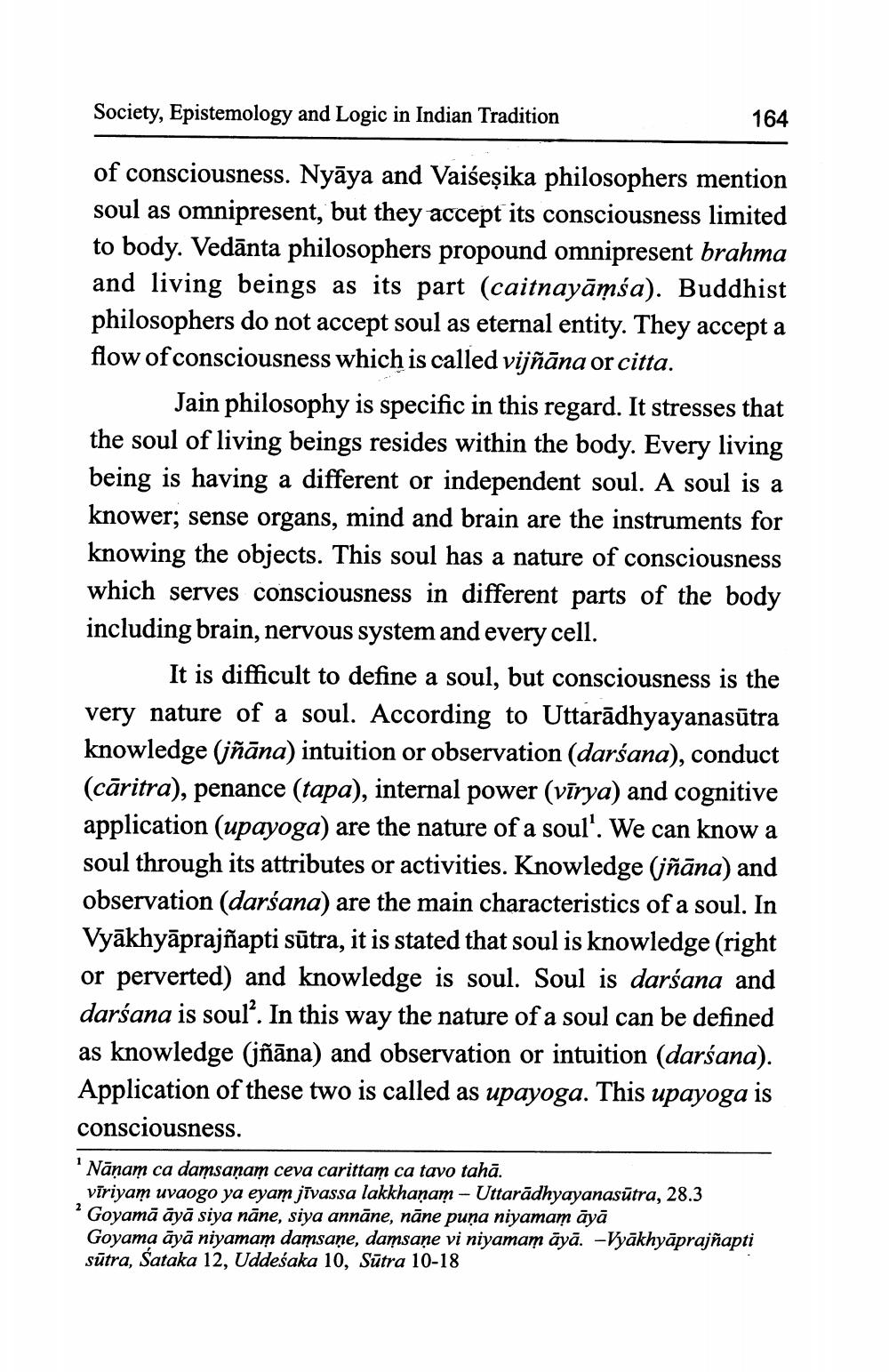________________
Society, Epistemology and Logic in Indian Tradition
164
of consciousness. Nyāya and Vaiseșika philosophers mention soul as omnipresent, but they accept its consciousness limited to body. Vedānta philosophers propound omnipresent brahma and living beings as its part (caitnayāmía). Buddhist philosophers do not accept soul as eternal entity. They accept a flow of consciousness which is called vijñāna or citta.
Jain philosophy is specific in this regard. It stresses that the soul of living beings resides within the body. Every living being is having a different or independent soul. A soul is a knower; sense organs, mind and brain are the instruments for knowing the objects. This soul has a nature of consciousness which serves consciousness in different parts of the body including brain, nervous system and every cell.
It is difficult to define a soul, but consciousness is the very nature of a soul. According to Uttarādhyayanasūtra knowledge (jñāna) intuition or observation (darśana), conduct (cāritra), penance (tapa), internal power (vīrya) and cognitive application (upayoga) are the nature of a soul'. We can know a soul through its attributes or activities. Knowledge (jñāna) and observation (darśana) are the main characteristics of a soul. In Vyākhyāprajñapti sūtra, it is stated that soul is knowledge (right or perverted) and knowledge is soul. Soul is darśana and darśana is soul?. In this way the nature of a soul can be defined as knowledge (jñāna) and observation or intuition (darśana). Application of these two is called as upayoga. This upayoga is consciousness.
Nānam ca damsaņam ceva carittam ca tavo tahā. vīriyam uvaogo ya eyam jīvassa lakkhanam - Uttarādhyayanasūtra, 28.3 Goyamā āyā siya nāne, siya annāne, nāne puna niyamam āyā Goyama āyā niyamam damsane, damsane vi niyamam āyā. -Vyākhyāprajñapti sūtra, Šataka 12, Uddeśaka 10, Sūtra 10-18




